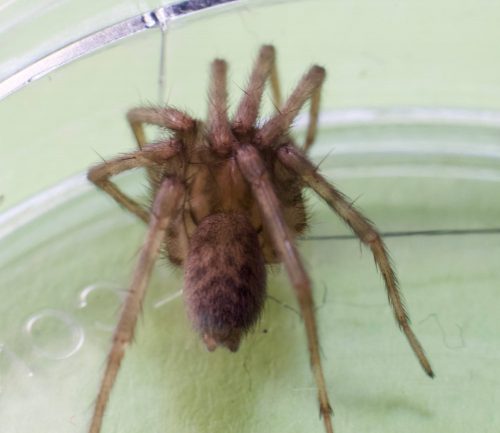I am just astounded at how many of the local spiders are guarding egg sacs right now. It’s as if they know the typical first frost is at the end of September, and then it won’t thaw until maybe May, so they’d better make babies before the killing freeze descends.




